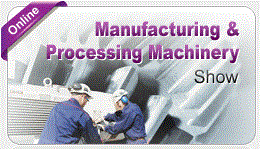The manufacturing industry is being revolutionized by the Internet of Things
- gtbmsbcs
- 2016年3月25日
- 讀畢需時 2 分鐘

The Internet of Things (IoT) is changing business models, increasing output, and automating processes across a number of industries. But no other sector has been more impacted by this technological revolution than manufacturing.
Manufacturers across all areas —automotive, chemical, durable goods, electronics, etc. — have invested heavily in IoT devices, and they're already reaping the benefits. Manufacturers utilizing IoT solutions in 2014 saw an average 28.5% increase in revenues between 2013 and 2014, according to a TATA Consultancy Survey.
In this report, we examine the ways the IoT will impact the manufacturing sector. We include forecasts on device shipments, the investments made by manufacturers on IoT solutions, and we examine the return on investment that manufacturers are witnessing from their IoT solutions. Further, we look at the common IoT use cases in manufacturing, including asset tracking, control room consolidation, predictive maintenance, autonomous robots, augmented reality, and additive manufacturing.
Companies mentioned in this report include: PTC, IBM, Cisco, Microsoft, Zebra Technologies, PWC, TATA Consultancy Services, Fanuc, Stanley Black and Decker, General Motors, KUKA Systems Group, Lockheed Martin, Epson, and more.
Here are some of the key takeaways:
Investment in the IoT by manufacturers will translate to billions in spending. We estimate that global manufacturers will invest $70 billion on IoT solutions in 2020. That's up from $29 billion in 2015.
Manufacturers are currently using IoT solutions to track assets in their factories, consolidate their control rooms, and increase their analytics functionality through predictive maintenance. Many IoT solutions are still basic, but we expect manufacturers to eventually implement more complex technologies, such as autonomous robots and augmented reality (AR) tools.
There are four top barriers that will create challenges for manufacturers as they begin to upgrade to the IoT. These barriers include the increasing threat of a cyber attack, difficulty determining ROI, technical difficulty integrating the IoT into a factory, and reluctance to implement automation, which would result in job losses.
Source: Business Insider





留言